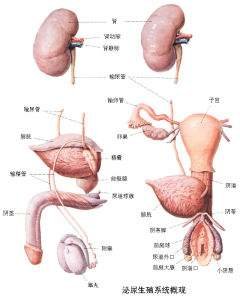How is uterine polyp to return a responsibility?
summary
Uterine polyp is a common gynecological disease. Broadly speaking, it refers to all the tumors attached to the uterine wall by slender pedicle, including endometrial polyps, endometrial adenomyomatous polyps, malignant polyps and so on. Most of them are benign, without obvious clinical symptoms, or cause increased menstruation, abnormal leucorrhea, vaginal bleeding, uterine enlargement, pain, etc. Hysteroscopy shows that polyps are different in size and pedicle length, which is a common intrauterine lesion in gynecology. Among them, endometrial polyps are the most common.
How is uterine polyp to return a responsibility?
Patients may have increased leucorrhea, leucorrhea with blood. A small number of polyps with longer pedicle can prolapse from the cervix, causing a small amount of vaginal bleeding, or bleeding after sexual intercourse and squatting stool. If polyp ulcer, infection, necrosis, can produce bloody or purulent leucorrhea.
Patients may have menorrhagia or shortened cycle or prolonged menstruation, menstrual dripping. Some patients will also bleed after married life, and the amount of bleeding in some patients is even similar to menstruation. Some patients may also show postmenopausal vaginal bleeding.
Some patients with uterine polyps have infertility or abortion, which is related to the location, size and number of polyps. If polyps grow in the cervical canal, they may hinder sperm from entering the uterine cavity; If it grows in the uterine cavity, it will hinder the implantation of fertilized eggs or affect the development of embryos, leading to infertility and abortion.
matters needing attention
Treatment principle: surgical resection. The treatment plan should be considered comprehensively according to the patient's age, symptoms, fertility requirements, polyp nature and growth rate. Hysteroscopic polypectomy is the most important treatment. Curettage should be performed for small focal or diffuse polyps, especially at the fundus and corner of uterus. Anti infection therapy should be used after uterine cavity operation.












